A Literary Cities piece on Lisbon, by Carlotta Eden.
Lisbon, really, is a poet’s city: second-hand book markets down every side street, blistered walls outside famous literary hide-outs like Café A Brasileira, and sweet-sticky smells from ice cream parlours and wine shops. Writers at work in Chiado, tiny cobblestones outside duck-egg blue buildings, and the Poets Hostel with its writerly themed room names like Sofia and Wordsworth. A literary heritage worth writing about.
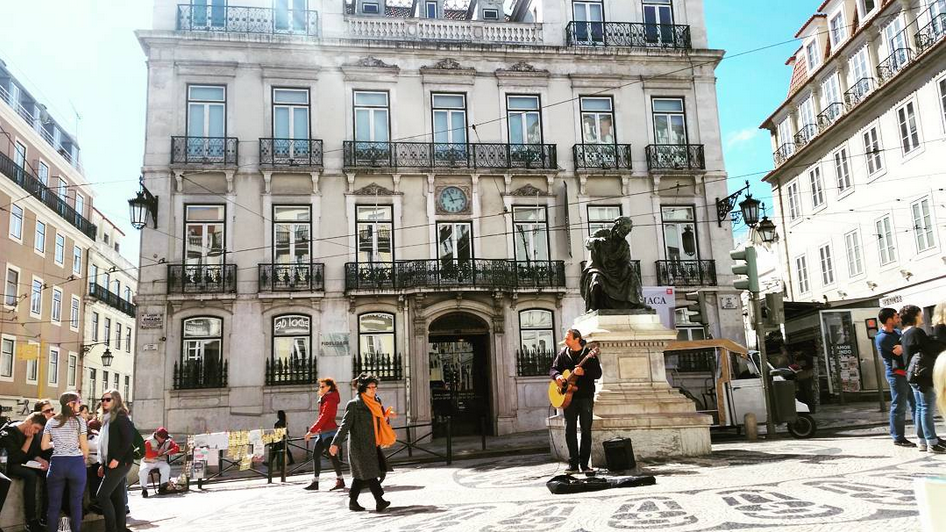
But then there are the smooth sun-yellow houses in Bairro Alto: the ordinary folk buying and selling in market places, cooking or drinking or playing fado on guitars that sting and shine. A simple, country-city. A working city for fishermen, cooks, weavers, painters – for women selling rosemary and basil outside the churches, black lace across their foreheads and beads strung on their wrists. So many times you want to write Lisbon in a story, then it reminds you that it’s not about you.
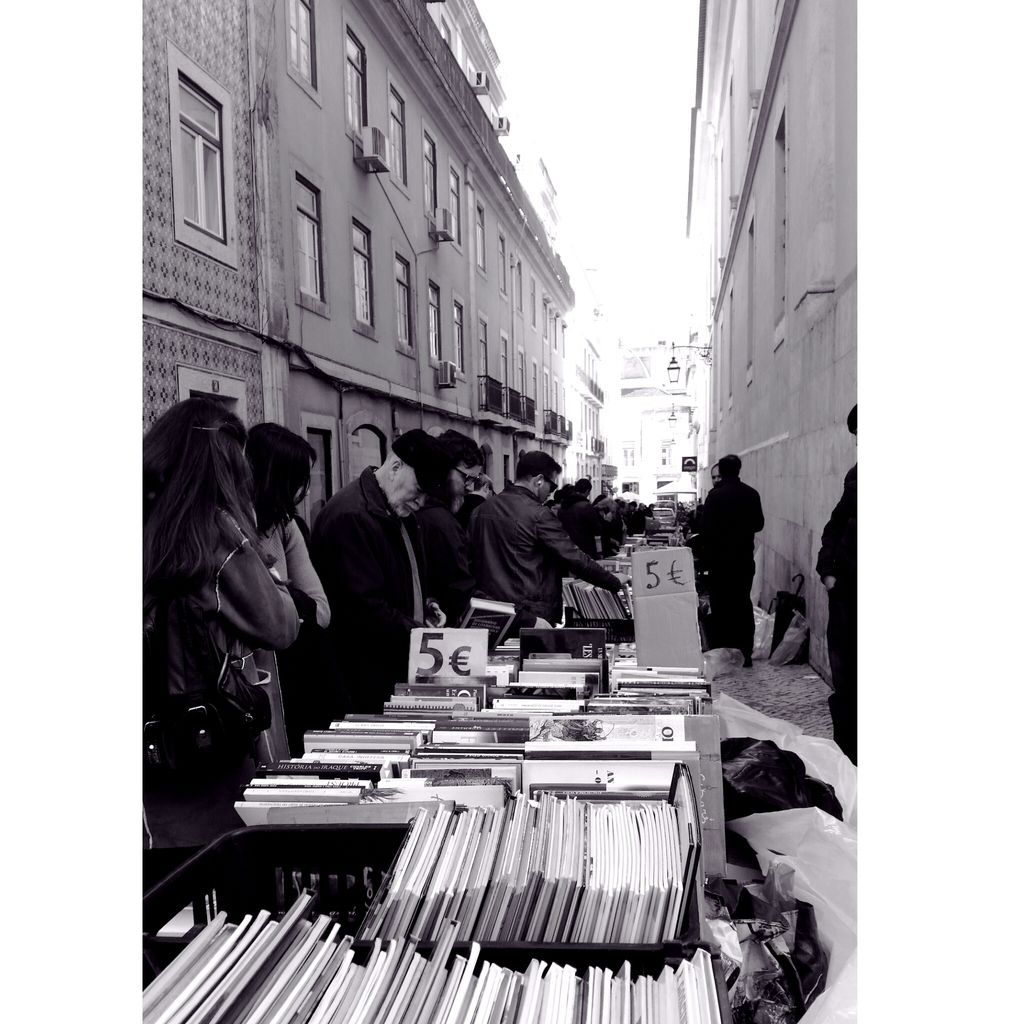
Lisbon stayed with me as the only city where I’ve put down my pen and just relaxed. I didn’t carry my notebook around with me, I didn’t write in a café on the square drinking dark espresso. I kinda forgot. I forgot about writing and when I remembered why I went away, to write, and read, I’d forget again. In the sun, Lisbon is cathartic. Dreamy. Full. It’s busy and bustling but not in the way you get with metropolises. It’s not metropolitan at all, even with its (tiny) backdrop of offices and silvery skyscrapers neatly tucked away. It felt like Prague: small and winding, old and bright.
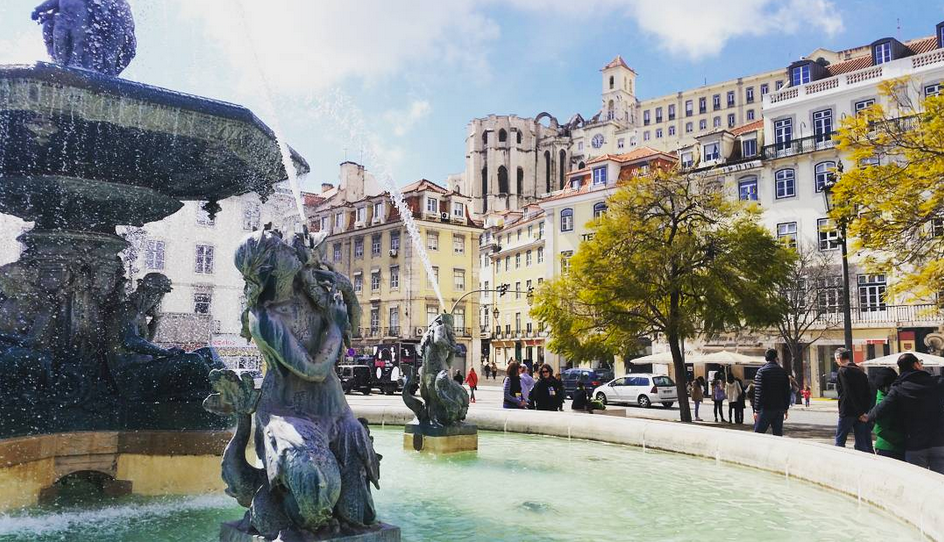
The only thing I wrote while I was in Lisbon was a list of the names of restaurants we visited. The bars we drank in and the meals we had. I can remember the oil on our fingers from the spicy chicken in Time Out’s Mercada da Ribeira – Lisbon’s main market hall turned trendy pop-up food hangout. I remember the coconut ice cream we stayed up late trying to find. The honey wine and dark-sky port and ginja bars serving wild cherry liquor and nothing else.
At Cozinha da Felicidade, we watched the chefs frying sardines and chopping capsicums the size of small heads. We spoke with a cook who used to work at the bar, who showed us how to petiscar (taste/savour small plates) and talked about his city: the specialty dishes and where to go for good pastéis de nata. He told us how he was leaving to start his own business, travelling around the country teaching families how to cook authentic Portugese food. He said Lisbonites get to know each other through eating and drinking, and I thought about something the food and travel photographer Jonathan Levitt once said about Montana, that went:
‘If you go to a bar in Montana, the subject people are talking about is trout fishing. They’re not just a bunch of aristocrats, they’re every type of person, and they all share love for this thing they do that’s infinitely complex and weird and interesting.’
In Lisbon, they all share a love for cooking. It spills out of their restaurants into the streets packed with city dwellers and tourists eating pastries and drinking sangria. I think it’s what unites them: sitting around a table in the warm evening sun, drinking, saluting the day – to families and health and love – and eating good food with good people. I think Lisbonites are every type of person. They all share a love for the thing that we all love, completely and absolutely, the thing that unites and separates us: cooking, grilling, frying, grinding. Preparing meals. Pouring drinks.
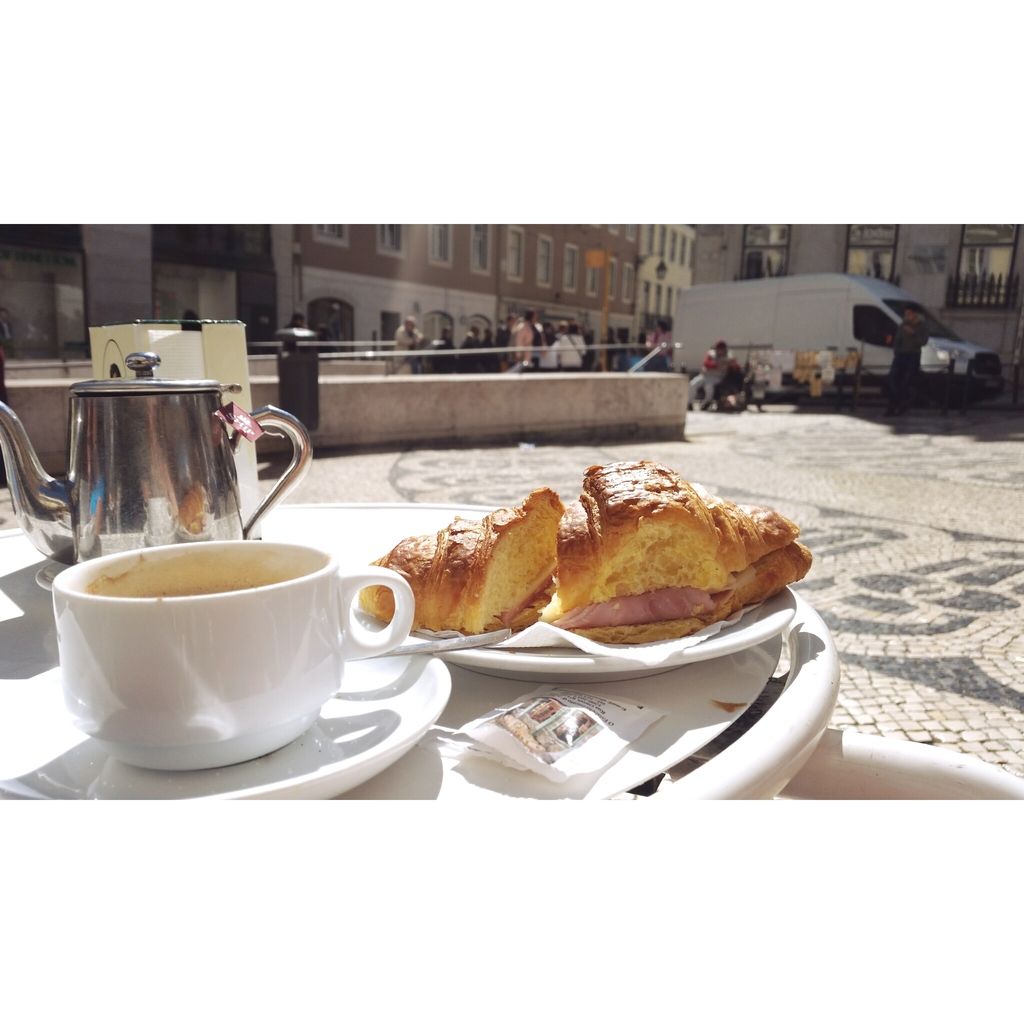
Cities, always, pull something out of me. I never know what, I never quite know why. A literary city is somewhere I can go that inspires me to write or discover new stories. I didn’t write in Lisbon and I didn’t want to – I wanted to dance with the girls we met in Bairro Alto, the ones we drank tequila all night long with, who taught us how to dance properly, with a man. The men who twirled us and gave us lavender to hold. I wanted to eat with my hands and sip ginja until my tongue stained dark. The stories, it seemed, could wait.
When I got home I looked up what Levitt had said in The Collective Quarterly’s Absaroka issue. He’s described as someone who likes ‘the wild things that grow around the edges’ and ‘doing things slowly, taking time’. It reminded me of watching the chefs cut vegetables in the market like they’d been doing it all their life, handling meat like it was the most delicate thing they’d ever touched. I thought about the people I had met and danced with while I browsed through photos from my trip – all of whom I had met or danced with while eating or drinking, the Portugese way.
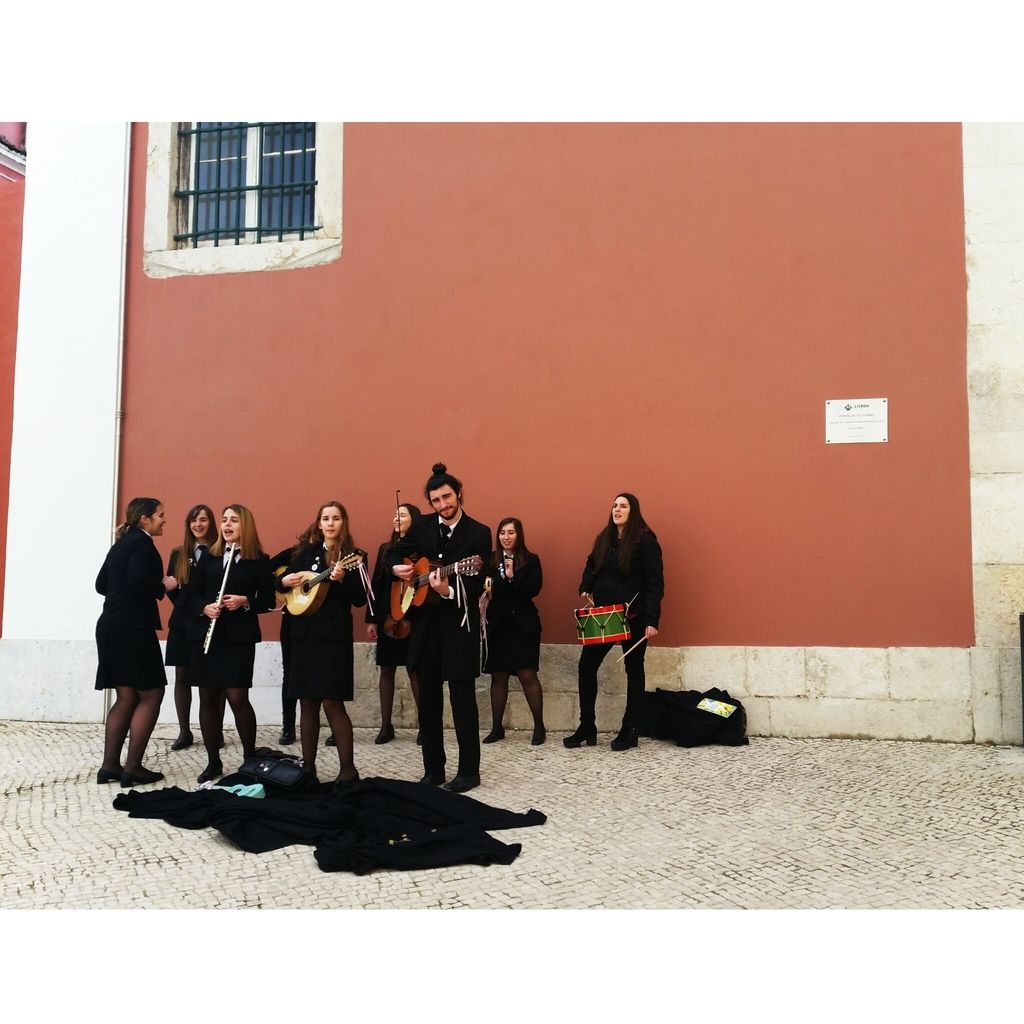
I like the wild things that grow around the edges in writing, too – the stories that feel raw and physical. The stories I can cut clean through and the ones that will always be tougher to write. Lisbon allowed me to close my notebook for a while and experience the tastes and sounds and smells without feeling as if I had to write it into a story. It was an exercise of experience, without the restriction of a notepad. Feeling a place with your body, and letting the words come later. Lisbon is a literary city, but not one that forces you down with a pen and paper. I think that’s what I needed to remember: to sometimes put writing to one side, and just relax.
This is a Literary Cities piece, part of a series where writers reflect on the places and experiences that have inspired them. To read more like this, click here.
Carlotta Eden
Carlotta Eden is a writer and editor living near London. She co-founded Synaesthesia Magazine and her writing can be found on Necessary Fiction, matchbook, WhiskeyPaper, Chicago Literati and elsewhere. Her favourite words are puckered and buffalo and disco. Find her on Twitter @1chae.

